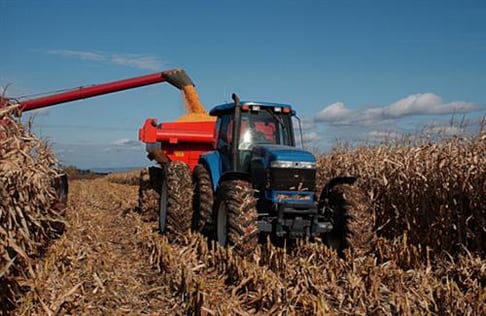
Your life is on the land, working the soil, managing your livestock and keeping the family farm going. You know that getting a new tractor or upgrading your farm's operation to include a drone can be expensive, but do you know what your equipment is really worth? A farm equipment appraisal can cover a lot more than just figuring out the value of your tractor. Here's a quick look at the types of machinery covered during an appraisal.
What Kind of Machinery is Covered in a Farm Equipment Appraisal?
- Tractors. Of course, as one of the primary ways to get work done on a farm, a tractor is one of the most commonly-appraised assets. The amount of horsepower, drivetrain, PTO capability and similar features go a long way to helping you get through your to-do list, and they all have value.
- Implements. Backhoes, bale spikes, front-end loaders, mowers, balers, drills, plows, harrows, rakes: whatever kind of implements you're using on your equipment, it helps you get the job done and can represent a large portion of your investment. Knowing what that investment is worth helps when you're contemplating an upgrade or trade-in.
- Drones. Combined with a solid precision agriculture strategy, aerial drones do a great job of spot-treating problem areas in your fields. This allows you to get a birds-eye-view of your herds, apply fertilizer, release beneficial insects and handle any number of other tasks without flattening your plants or even leaving the house.
- Refrigerators and coolers. Whether it's getting milk from your dairy herd cold, cooling your produce or just keeping some of those wonderful, farm-fresh products cold and fresh for your customers at the farmer's market, these vital pieces of equipment help extend the life of your harvest.
- Trailers and tow vehicles. With the cost of heavy-duty trucks, stock trailers and grain wagons, it's important to have an idea of what this type of equipment is worth. By knowing the estimated value of your farm truck, you can better decide when it makes the most sense to start looking at replacements, before you've lost too much of your trade-in value.
- Livestock handling equipment. Squeeze chutes, separating gates, corrals, round pens: when you have a livestock operation, you've got a lot of equipment in the field at any given moment, especially when it's time to change things up for the season or send your stock off to the market. Valuing this equipment makes it easier to know what you've got on the ground.
- Greenhouse equipment. Season extenders such as greenhouses, hoop houses and similar setups include their own range of equipment, including fans, automated vent systems, mist systems, roller tables, propagation systems, irrigation, shade cloth mechanization and numerous other items. By knowing what they're worth, you have a better idea of your overall investment.
Having a farm equipment appraisal performed on your operation's machinery can make it easier to deal with incorrect tax assessments, file insurance claims, prove value during a sale or financing situation and when facing legal issues. However, that estimated value will best hold up to scrutiny if you have the valuation performed by an accredited equipment appraiser, who has had extensive education and experience in determining value throughout their accreditation process.


